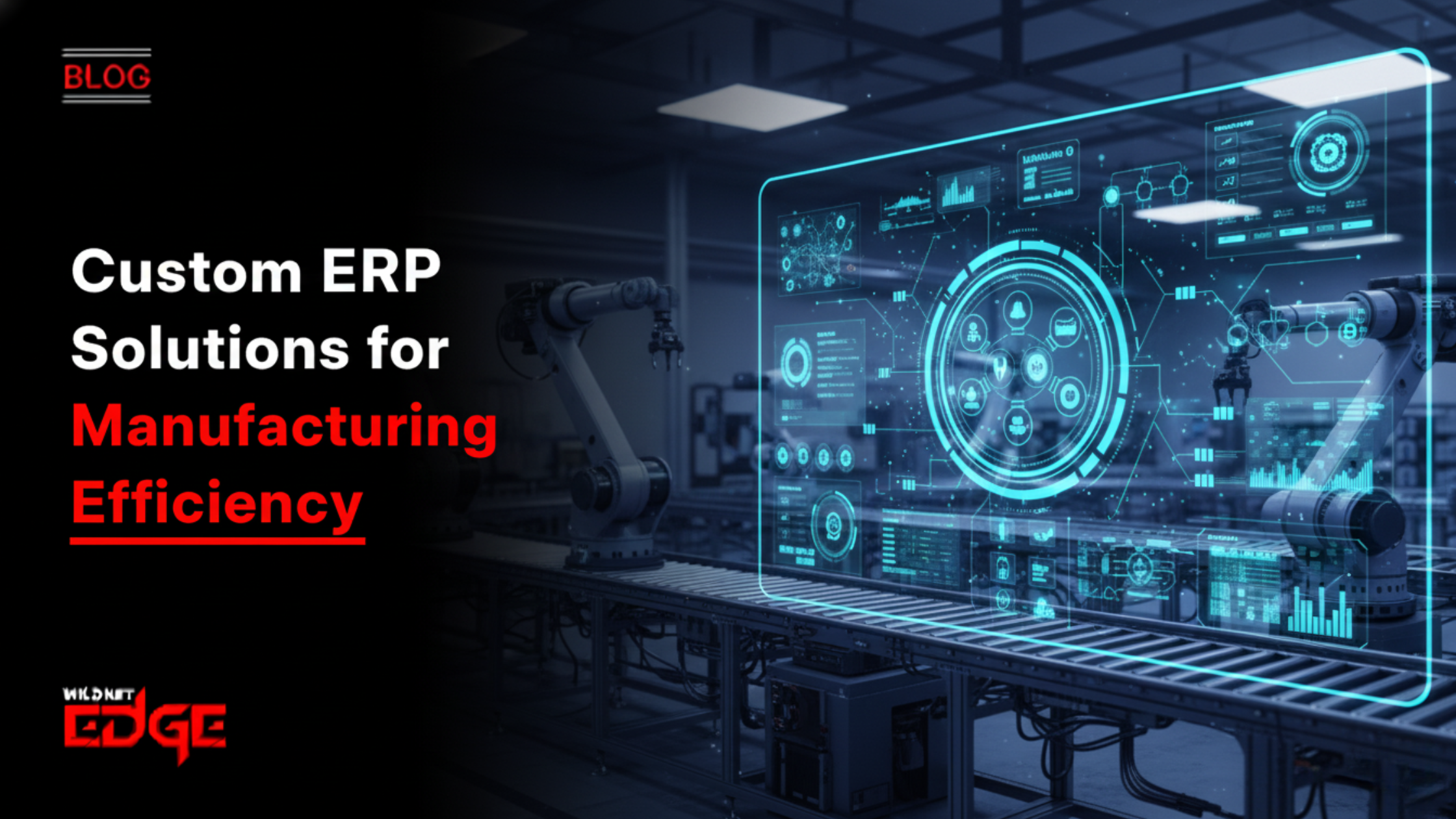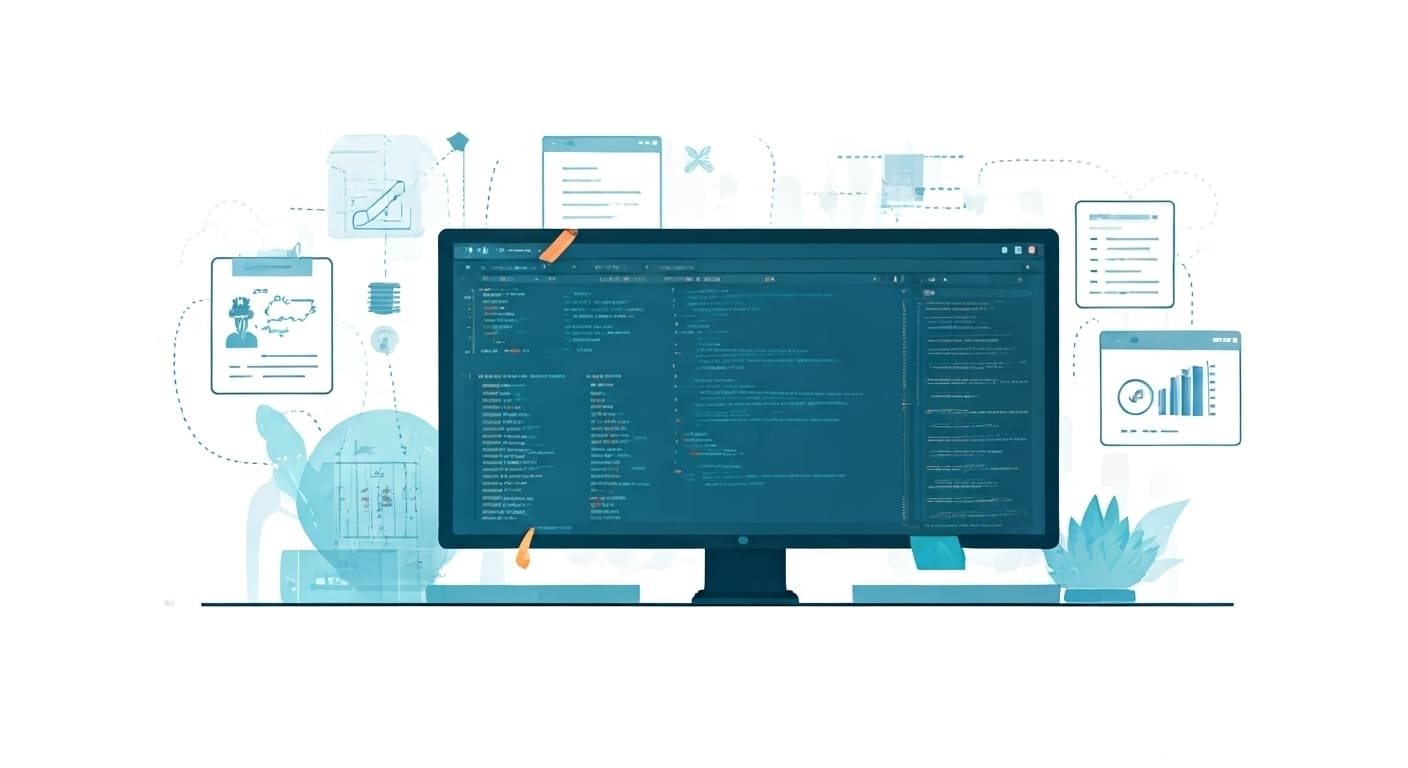Introduction:
Are you struggling to keep your manufacturing processes organized and efficient? You’re not alone. Many manufacturing units face the daunting challenge of managing complex operations without the right tools. Enter ERP for manufacturing—a game changer that can transform your workflow and boost productivity. In this blog, we’ll explore how custom ERP solutions can revolutionize your factory operations, making them smoother and more efficient.
Factory ERP Software
Factory ERP software is designed specifically for manufacturing units, helping streamline various aspects of production and operational management. One of the standout features is integrated inventory management, which allows manufacturers to keep track of raw materials and finished goods in real-time. This minimizes stockouts and overstock situations, ensuring you have the right materials at the right time.
Another essential feature is production planning and scheduling. This functionality enables manufacturers to optimize their production schedules, reducing downtime and increasing throughput. With real-time data analytics, factory ERP software can provide insights into production bottlenecks, allowing you to address issues promptly and improve overall efficiency.
The benefits of using factory ERP software extend beyond mere operational improvements. By leveraging automated reporting and analytics, manufacturers can gain deeper insights into their processes, enabling more informed decision-making. This not only enhances productivity but also fosters a culture of continuous improvement within the organization.
Moreover, user-friendly interfaces in modern factory ERP software make it easier for employees to adapt quickly. With a focus on usability, training time is reduced, and staff can start leveraging the system’s capabilities almost immediately.
In summary, factory ERP software is a vital tool for manufacturing units looking to streamline their operations, reduce costs, and enhance productivity. By implementing such software, you can ensure that your factory runs like a well-oiled machine.
Custom ERP System
Implementing a custom ERP system offers numerous advantages over off-the-shelf solutions, particularly for manufacturing units with unique needs. One of the primary benefits is the tailored functionality that a custom system provides. Unlike generic solutions, a custom ERP can be designed to meet the specific workflows, processes, and compliance requirements of your manufacturing operations.
Another significant advantage is scalability. As your business grows, your ERP system should grow with you. Custom ERP solutions can be built to accommodate future expansions, whether that means adding new functionalities, integrating with additional software, or supporting increased production volumes. This adaptability is crucial in a fast-paced manufacturing environment where market demands can change rapidly.
Furthermore, a custom ERP system can facilitate better integration with existing tools and technologies used in your manufacturing unit. This can include machinery, legacy systems, or specialized software that your team relies on daily. Seamless integration ensures that all parts of your operation communicate effectively, reducing the risk of data silos and enhancing overall efficiency.
A custom solution also allows for enhanced data security. Since you have control over the system’s architecture and functionalities, you can implement robust security measures tailored to your organization’s specific vulnerabilities. This is particularly critical in manufacturing, where sensitive information about processes, product designs, and customer data is often at stake.
In conclusion, investing in a custom ERP system provides manufacturing units with the flexibility, scalability, and tailored functionalities necessary to thrive in a competitive landscape. By choosing a custom solution, you not only meet your current needs but also position your business for future success.
Key Features of Effective ERP for Manufacturing
When selecting an ERP system for manufacturing, several key features can significantly impact its effectiveness. Here are some essential functionalities to look for:
- Inventory Management: Effective ERP solutions should offer real-time visibility into inventory levels, helping to minimize waste and ensure that production schedules are not disrupted due to material shortages.
- Production Planning and Scheduling: This feature allows manufacturers to optimize their production processes by providing tools for scheduling, capacity planning, and workflow management. It helps ensure that production runs smoothly and efficiently.
- Quality Control: An effective ERP system should include quality management tools that enable manufacturers to monitor and maintain product quality throughout the production process. This reduces defects and enhances customer satisfaction.
- Supply Chain Management: A robust ERP solution integrates supply chain management functionalities, allowing manufacturers to manage supplier relationships, track shipments, and optimize procurement processes. This is crucial for maintaining a steady flow of materials and products.
- Data Analytics and Reporting: Advanced analytics capabilities enable manufacturers to derive actionable insights from their data. Customizable dashboards and reporting tools help track key performance indicators (KPIs) and facilitate data-driven decision-making.
- User-Friendly Interface: A system with an intuitive design ensures that employees can quickly learn to navigate the software, minimizing training time and enhancing user adoption.
- Mobile Accessibility: In today’s fast-paced manufacturing environment, having access to ERP data on mobile devices can be a game changer. This feature allows managers and employees to monitor processes and make decisions on the go.
By focusing on these key features, manufacturing units can select an ERP system that not only meets their current needs but also supports their long-term operational goals.
Trends in Manufacturing ERP Solutions
The landscape of ERP for manufacturing is evolving rapidly, influenced by technological advancements and changing market demands. Here are some emerging trends that are shaping the future of manufacturing ERP solutions:
- Cloud-Based ERP: The shift towards cloud-based ERP systems is gaining momentum. These solutions offer scalability, flexibility, and lower upfront costs, making them accessible for manufacturing units of all sizes. Cloud ERP also facilitates remote access, allowing teams to work from anywhere.
- Artificial Intelligence (AI) and Machine Learning (ML): AI and ML are being integrated into ERP systems to enhance data analytics capabilities. These technologies can help manufacturers predict trends, optimize production schedules, and improve quality control processes by analyzing historical data and identifying patterns.
- Internet of Things (IoT) Integration: IoT devices are increasingly being used in manufacturing to gather real-time data from machinery and production lines. Integrating IoT with ERP systems enables manufacturers to monitor equipment health, optimize maintenance schedules, and improve overall operational efficiency.
- Mobile ERP Solutions: As mobile technology continues to advance, more ERP providers are offering mobile-friendly solutions. This trend allows employees to access critical information and perform tasks from their smartphones or tablets, enhancing productivity and responsiveness.
- Enhanced User Experience (UX): Manufacturers are demanding ERP systems that are not only powerful but also easy to use. As a result, ERP vendors are focusing on improving UX, making their systems more intuitive and visually appealing.
- Sustainability Features: With growing emphasis on sustainability, many ERP solutions now include features that help manufacturers track and reduce their environmental impact. This could involve monitoring energy consumption, waste management, and compliance with environmental regulations.
By staying abreast of these trends, manufacturing units can ensure they are leveraging the latest technologies to enhance their operations and maintain a competitive edge.
Conclusion:
In summary, custom ERP solutions can significantly enhance the efficiency and effectiveness of your manufacturing operations. By choosing the right factory ERP software tailored to your specific needs, you can streamline processes, improve productivity, and position your business for growth. If you’re looking for a trusted partner to help you implement these solutions, WildnetEdge stands ready to assist you in transforming your factory into a model of productivity. Contact us today to learn more!
FAQs
Q1: What are the benefits of ERP for manufacturing?
ERP for manufacturing enhances efficiency, reduces costs, and improves data accuracy.
Q2: How does custom ERP software differ from standard solutions?
Custom ERP software is tailored to meet specific needs, offering more flexibility and features relevant to your operations.
Q3: What features should I look for in factory ERP software?
Look for inventory management, real-time data analytics, and production planning capabilities.
Q4: Can ERP systems integrate with existing manufacturing tools?
Yes, many ERP systems are designed to integrate seamlessly with existing tools and software.
Q5: How do I choose the right ERP system for my manufacturing unit?
Assess your specific needs, budget, and the scalability of the ERP solution before making a choice.

Nitin Agarwal is a veteran in custom software development. He is fascinated by how software can turn ideas into real-world solutions. With extensive experience designing scalable and efficient systems, he focuses on creating software that delivers tangible results. Nitin enjoys exploring emerging technologies, taking on challenging projects, and mentoring teams to bring ideas to life. He believes that good software is not just about code; it’s about understanding problems and creating value for users. For him, great software combines thoughtful design, clever engineering, and a clear understanding of the problems it’s meant to solve.
 sales@wildnetedge.com
sales@wildnetedge.com +1 (212) 901 8616
+1 (212) 901 8616 +1 (437) 225-7733
+1 (437) 225-7733















 ChatGPT Development & Enablement
ChatGPT Development & Enablement Hire AI & ChatGPT Experts
Hire AI & ChatGPT Experts ChatGPT Apps by Industry
ChatGPT Apps by Industry ChatGPT Blog
ChatGPT Blog ChatGPT Case study
ChatGPT Case study AI Development Services
AI Development Services Industry AI Solutions
Industry AI Solutions AI Consulting & Research
AI Consulting & Research Automation & Intelligence
Automation & Intelligence















